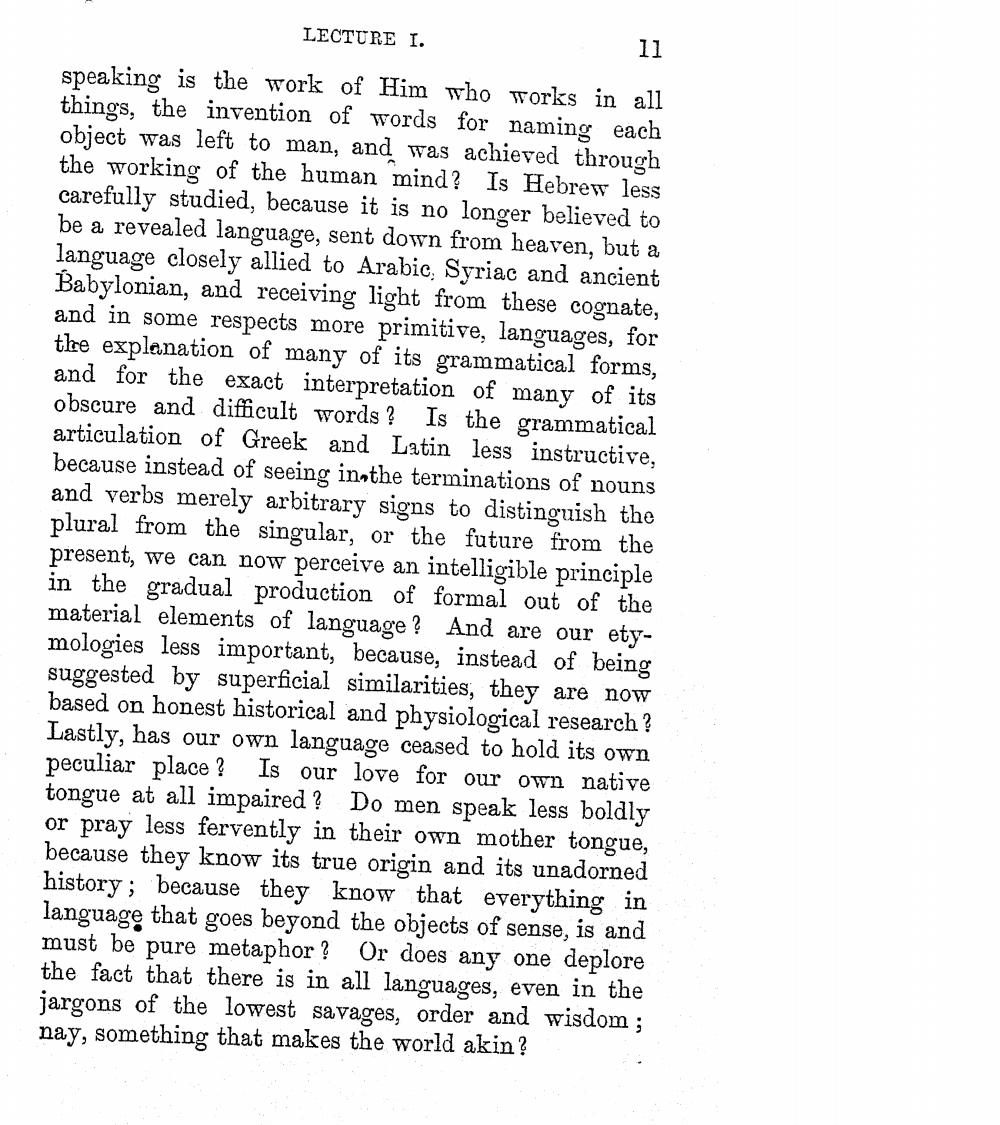________________
LECTURE I.
11
speaking is the work of Him who works in all things, the invention of words for naming each object was left to man, and was achieved through the working of the human mind? Is Hebrew less carefully studied, because it is no longer believed to be a revealed language, sent down from heaven, but a language closely allied to Arabic, Syriac and ancient Babylonian, and receiving light from these cognate, and in some respects more primitive, languages, for the explanation of many of its grammatical forms, and for the exact interpretation of many of its obscure and difficult words? Is the grammatical articulation of Greek and Latin less instructive, because instead of seeing in the terminations of nouns and verbs merely arbitrary signs to distinguish the plural from the singular, or the future from the present, we can now perceive an intelligible principle in the gradual production of formal out of the material elements of language? And are our etymologies less important, because, instead of being suggested by superficial similarities, they are now based on honest historical and physiological research? Lastly, has our own language ceased to hold its own peculiar place? Is our love for our own native tongue at all impaired ? Do men speak less boldly or pray less fervently in their own mother tongue, because they know its true origin and its unadorned history; because they know that everything in language that goes beyond the objects of sense, is and must be pure metaphor? Or does any one deplore the fact that there is in all languages, even in the jargons of the lowest savages, order and wisdom; nay, something that makes the world akin?




